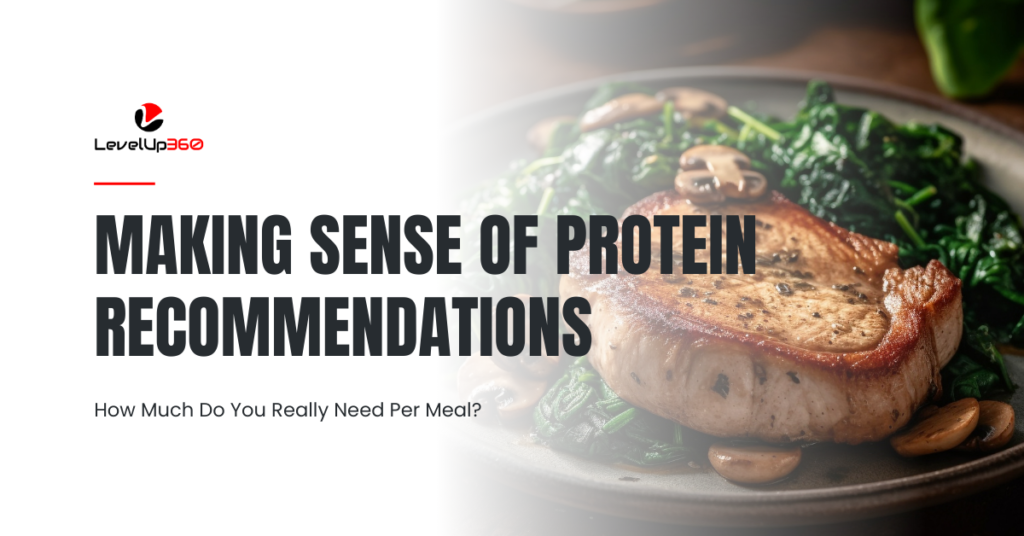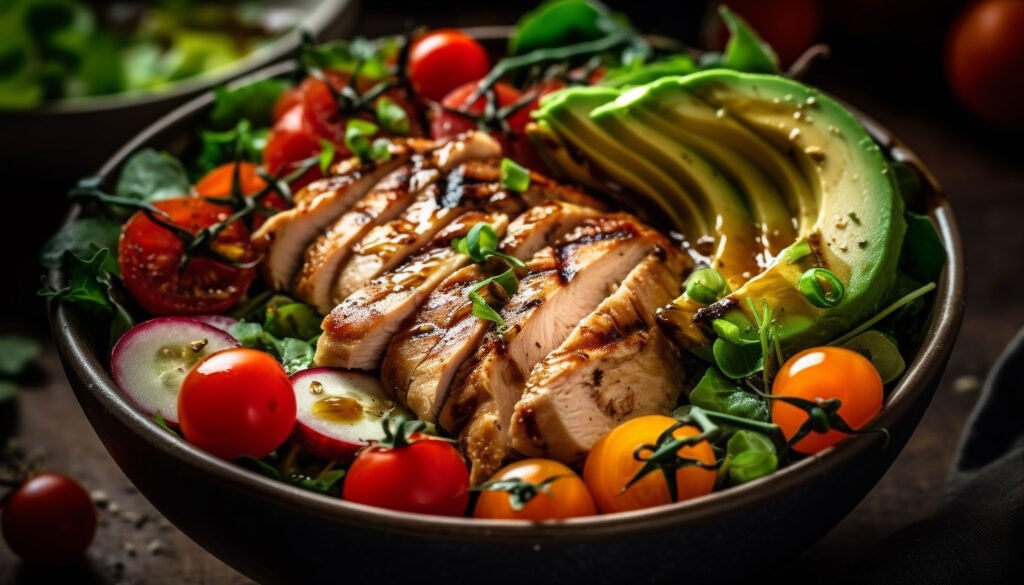
Making Sense of Protein Recommendations: How Much Do You Really Need Per Meal?
Building muscle requires hard work in the gym, proper nutrition, and consistency. If you want to get bigger and stronger, protein should be a key part of your diet. But how much protein do you really need each day? And does it matter how you spread out your protein intake?
For a long time, the standard advice has been to eat 20-25 grams of protein per meal. Supposedly, this was the ideal amount to maximise muscle growth after training. Consuming any more than that in one sitting would be wasted.
Following this logic, most experts recommended splitting up your daily protein intake into 4-6 moderate servings. For a 90 kg person, this would equal 80-150 grams of protein per day.
In theory, properly timing these 20-25 gram feedings allowed you to get the most out of every meal for muscle building. But when you look at the research on long-term muscle growth, it doesn’t quite match up.
Studies consistently show greater gains in muscle size and strength in higher protein intakes compared to lower intakes. The benefits continue up to amounts approaching 1.6-2.2 grams per kilogram of body weight (144-198 grams for a 90 kg person).
That’s much higher than the 80-150 gram range suggested by traditional protein timing wisdom centred around 20-25 grams per meal.
So what gives? Does this mean all the rules about protein dosing are wrong? Not so fast. A fascinating new study provides some biological clues that help make sense of this apparent contradiction.
Ample protein provides raw materials to support the muscular gains prompted by your workouts
The Research
The study, cleverly titled “No ceiling effect of whey protein on synaptic markers of muscle anabolism following resistance exercise,” was carried out by a team led by Dr. Luc van Loon at Maastricht University.
Here’s what they did:
36 young, healthy men completed an intense, full-body resistance workout. Immediately after, they consumed a post-workout shake containing either 0, 25, or 100 grams of milk protein.
The researchers then spent the next 12 hours tracking what happened by taking muscle biopsies and blood samples. They looked at rates of muscle protein synthesis (MPS)—the process of building new muscle—along with other markers of protein metabolism.
This study design provides a couple key advantages versus previous protein research:
- The use of free weight, multi-joint exercises as opposed to simpler movements like leg extensions. This better replicates a real-world training session.
- The extended 12-hour testing period, rather than just a few hours. This allows us to observe the complete time-course of protein digestion and utilization.
So what did they find?
The major takeaway is that more protein generated greater muscle growth signals…with no apparent ceiling.
Rates of MPS showed a clear dose-response relationship, with 100 grams stimulating substantially higher MPS compared to 25 grams or no protein. And this difference was even more pronounced later into the recovery period.
Between 4-12 hours post-shake, 100 grams boosted MPS 40% over 25 grams. The 25 gram dose’s effects had tailed off by this point, whereas the 100 gram dose was still going strong.
The body didn’t simply max out its capacity to absorb or utilize high amounts of protein, as the common “muscle full” idea suggests. Nor was there any indication of increased protein “wastage” at higher doses.
The researchers concluded that, at least in this context, more protein meant more growth, full stop.
Making Sense of It All
This study alone doesn’t prove that eating way more protein per meal is necessary for maximising your gains. But it provides a biologically plausible explanation for why the evidence seems to point in that direction.
It appears that the body can take advantage of larger protein servings by sustaining elevated MPS for longer compared to smaller servings. In other words, bigger doses extend the “anabolic window” after eating.
This helps reconcile the disconnect between the short-term protein dose studies (where 20-25 grams maximises MPS) and longer-term trials (where higher protein intakes clearly win out).
Cumulatively over days, weeks, and months of training, being able to continually “top up” MPS is likely advantageous. Even if the initial spike in MPS is similar across different doses, the total time spent synthesising new proteins seems to predict long-run hypertrophy.
Here’s an analogy:
Imagine protein intake is like making free throws in basketball. Each shot is worth 1 point no matter what.
According to conventional wisdom, after 20-25 free throws (grams of protein), you’ve maxed out your shooting ability. Throwing up any more shots just tires your arms without scoring extra points.
But based on this new evidence, it’s more like your shooting accuracy eventually decreases over many repeated shots. So by taking way more attempts—let’s say 100 shots—you end up scoring more total points because you make more of those later shots.
In this basketball scenario, sheer volume matters more than short-term shooting percentage. It’s the same idea with protein for muscle growth.
Practical Takeaways
With the basics covered, let’s get into practical advice. Here are some key takeaways:
- Focus on total daily protein intake from a quality protein source as your primary goal. 1.6-2.2 grams per kilogram (or 0.7-1.0 grams per pound) of body weight is a reasonable target. Spreading this out over 3-4 meals works well.
- You almost certainly don’t need to meticulously time your protein doses. As long as you eat several significant servings of protein spaced throughout the day, you’re probably good.
- Don’t stress about hitting an exact number per meal. Anything from 20-50 grams is very likely sufficient to stimulate growth (I personally aim for at least 30g per meal). Larger doses may provide a modest benefit via prolonging MPS.
- If you prefer fewer but bigger protein feedings, that’s perfectly fine too. You can absolutely build muscle by having 2 large protein-rich meals per day, possibly even 1 as long as you consume enough protein (i.e. 1.6-2.2 grams per kilogram). Having said that, if your goal is to “maximise” your potential gains, having a single protein intake is unlikely to achieve that.
- At the end of the day, total daily protein trumps meal timing strategies. Don’t major in the minors—focus on your training and hitting a good overall protein target.
The Bottom Line

This data doesn’t totally rewrite the protein rule book. However, it provides a plausible scientific rationale for upping your protein intake beyond dated misconceptions about anabolic “ceilings” or maximising MPS.
Of course, protein is only one piece of the muscle-building puzzle. Hard, intelligent training and a calorie surplus are the real drivers of growth. Genetics and other factors also clearly play a role.
But assuming the basics are covered, ample protein provides raw materials to support the muscular gains prompted by your workouts. So be sure to eat enough quality protein daily, focus on progression in the gym, and enjoy the gains!
Recommended reading
Recommended reading
Additional Resources
Feeling in control of your health
If you are interested in improving your health and wellness, check out other resources such as Our Blog, Free Resources and/or join our private Body-Mind Transformation Secrets Community on Facebook, and go on an even deeper dive with me to uncover how to succeed in your health and wellness goals.
You may also be interested in our Sleep Secrets Cheat Sheet. It is a great resource with strategies to fix and optimize your sleep which is crucial to succeeding in your health and wellness goals.
Resources
Pictures








